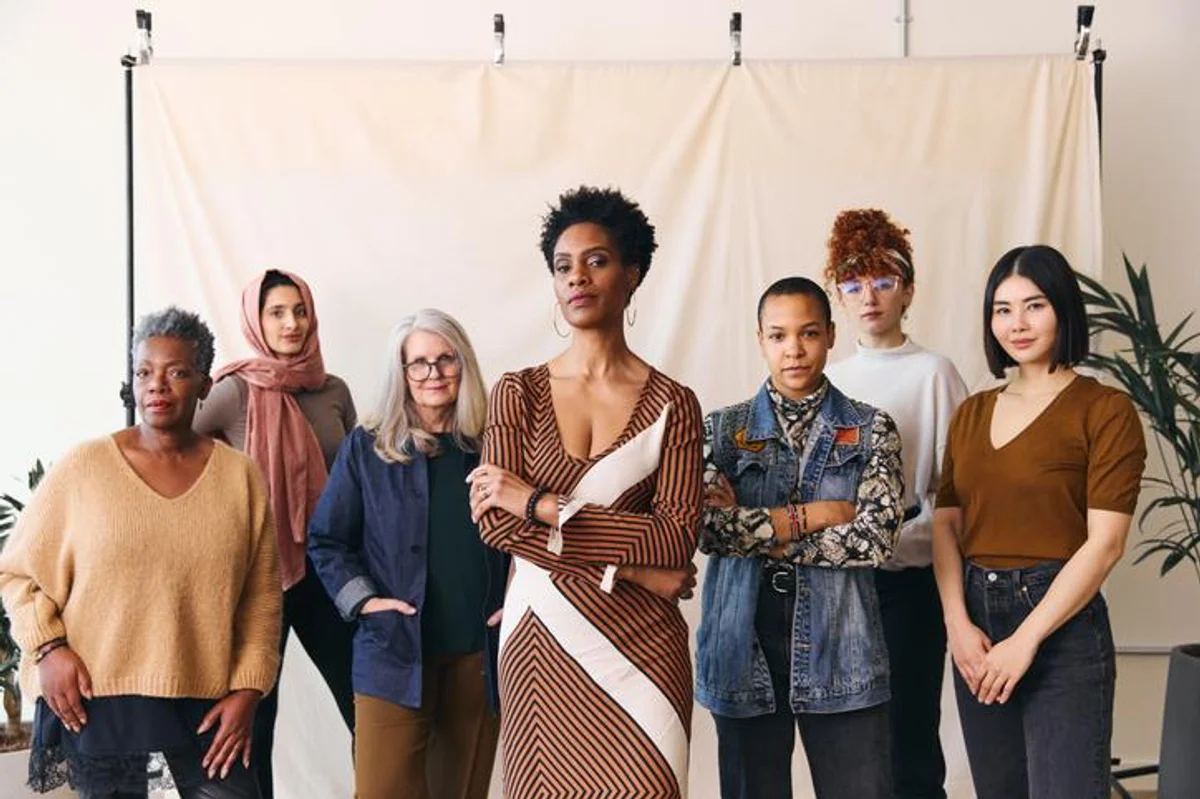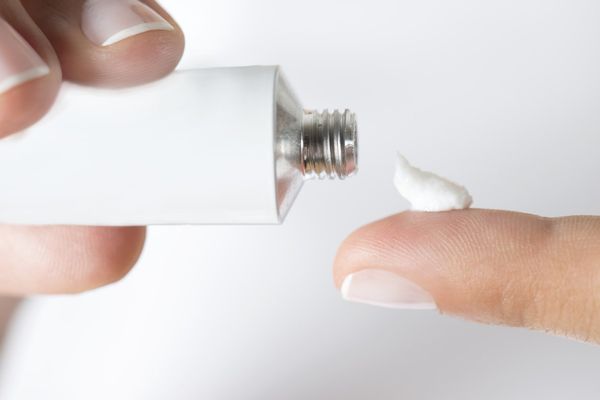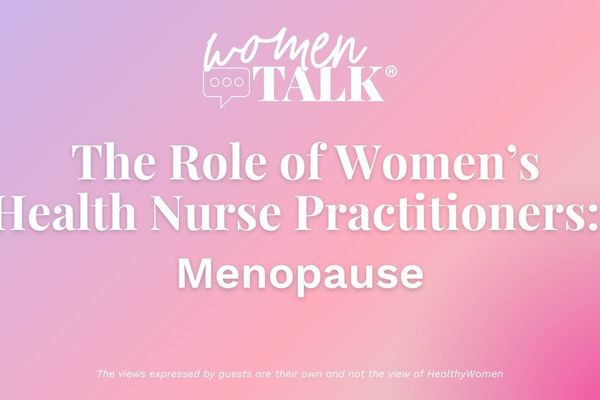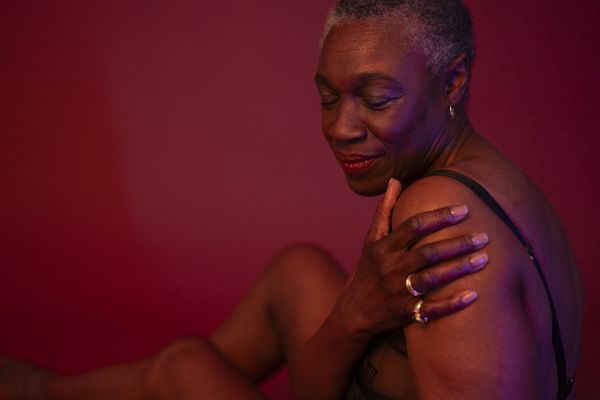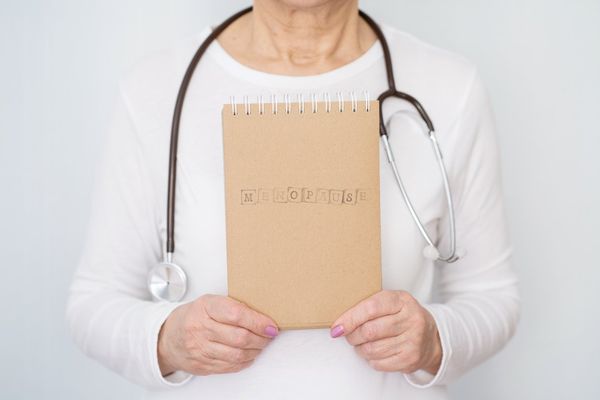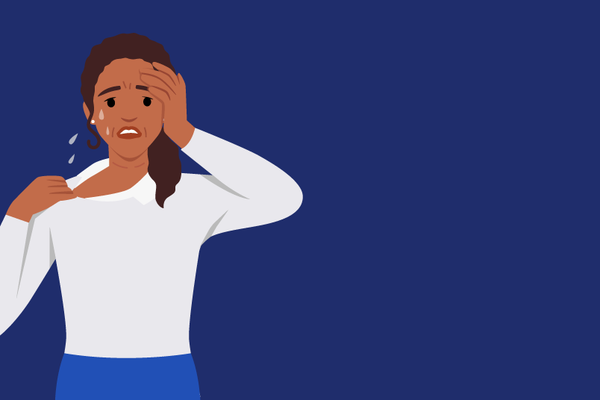When Adeola Davies-Aiyeloja first began experiencing certain symptoms of menopause, she had no idea what was happening. She’d heard about hot flashes and the end of menstruation, but the mental, physical and emotional changes came as a surprise.
“When it hits you, you think, ‘What is this thing?’” she said. “There were so many misconceptions about menopause that I had before going through it.”
Davies-Aiyeloja’s experience served as inspiration for an artistic project, “Unexpected Expectations of Men-O-Pause,” which she displayed in November 2022 in Pomona, California. To create the exhibit, she asked for submissions in social media groups and got responses from sorority sisters and women she met in beauty salons. In all, she received more than 70 responses — with some women speaking positively about menopause while others mentioned living in environments where no one spoke of it at all.
“In my little corner of the world, I want to have people talking about menopause,” she said. “But this is beyond just me. Fifty percent of the world’s population consists of women. This is a discussion about women.”
When menopause is taboo
Although almost every woman who reaches midlife will go through menopause, a growing body of research is finding that cultural, community, friend and family attitudes about aging can have a major impact on women’s experiences with menopause. In environments where there is stigma about aging, women have reported worse physical and mental symptoms compared to women in communities where the aging process is more normalized.
Mary Jane Minkin, M.D., a HealthyWomen Women’s Health Advisory Council member; clinical professor in the Department of Obstetrics, Gynecology and Reproductive Sciences at the Yale University School of Medicine; and an OB-GYN with close to 40 years in private practice, puts the United States among societies where the lack of knowledge and discussion about menopause has led to worse outcomes for women.
“Doctors didn’t learn about menopause in the 1970s and 1980s, and there wasn’t much training in residency about it,” she said. “The focus was on young women, pregnancy and how to avoid pregnancy. Menopause got shoved to the bottom of our training. As my patients got older and older, I had to learn more about menopause.”
Even as the country has shifted toward caring for older patients as the nation ages, Minkin said medicine for older individuals is more focused on managing health conditions that become more common with age for all genders, such as high blood pressure and diabetes.
“Menopause isn’t a topic most people want to address because we’re a society that worships youth,” Minkin said. “Ageism works against normalizing the menopausal transition. In countries where older people are revered and respected, how are things different?”
The menopausal experience of women in Japan is often mentioned in contrast to that of women in the U.S., because Japanese women report fewer and less frequent hot flashes. Minkin said nutritional differences in the Japanese diet could be a factor because it contains a lot of soy (the jury is still out on the benefits and risks of dietary soy). But researchers also suggested that a greater cultural respect and reverence for elderly women in Japan could be another factor that accounts for an easier menopausal transition.
The Study of Women’s Health Across the Nation (SWAN), considered the gold standard for menopause research, also looked at racial and ethnic differences among the women who responded to the survey. African American, Asian and Latinx women tended to enter menopause and perimenopause a couple of years earlier than white women. African American women reported the longest duration for hot flashes and experienced them more frequently, while Asian women were less likely to experience difficult hot flashes.
Minkin said researchers don’t know the reasons for racial and ethnic differences in menopause among women in the United States, but said those differences could reflect more serious health concerns that deserve investigation.
“This is a public health issue,” Minkin said. “Women with a higher burden of hot flashes also had more cardiovascular disease. Are vasomotor symptoms affecting heart and cardiac issues?”
Attitudes about sex can also have an impact on how menopause is addressed. Minkin noted that topics related to sex tend not to be discussed in our country, noting how frequently she fights with insurance companies to cover patient prescriptions for vaginal estrogen used to treat vaginal dryness, which is a typical symptom of menopause.
Minken even saw one patient who suffered from frequent urinary tract infections because of vaginal dryness who was denied coverage for an estrogen cream that would help with lubrication and possibly prevent future infections.
A lack of awareness about menopause or respect toward aging in western countries can also lead to cognitive and physical issues that force women out of the workforce if symptoms are left untreated.
“Women at work are having to quit or cut back on hours because of menopausal and perimenopausal symptoms,” Minkin said. “We’re losing a huge part of our workforce when we could make simple accommodations like putting on the air conditioner, opening a window or letting women work closer to a bathroom.”
As Davies-Aiyeloja talked to women for her exhibit, she heard many of the same stories. Some women fired longtime OB/GYNs who dismissed menopausal symptoms such as painful intercourse due to vaginal dryness. Others said they felt isolated within their family circles when other women refused to discuss anything about menopause. They went on to seek support from friends or start from scratch with their own research.
Davies-Aiyeloja said she didn’t see one consistent theme among the Black sorority sisters or salon-goers she met in terms of cultural impact on their menopausal experience, but that being able to talk to others for support and information made the most impact in how they were able to manage their symptoms.
“The more people share, the more we’re able to learn,” she said. “One size doesn’t fit all, but knowledge is power. I’m so thankful for the inclusiveness, openness and the willingness of so many women to share their experiences with me.”
This resource was created with support from Astellas.
- Dressing Your Age: Removing the Stigma ›
- Putting a Stop to the Stigma Around Menstruation ›
- Black Women Often Suffer in Silence During Menopause. I’m Going to Keep Talking. ›
- Menopause Set Me on Fire, but I’m Staying Cool ›
- Why Talking About Menopause Has Been Taboo for Too Long ›
- Support for Menopause in the Workplace - HealthyWomen ›

